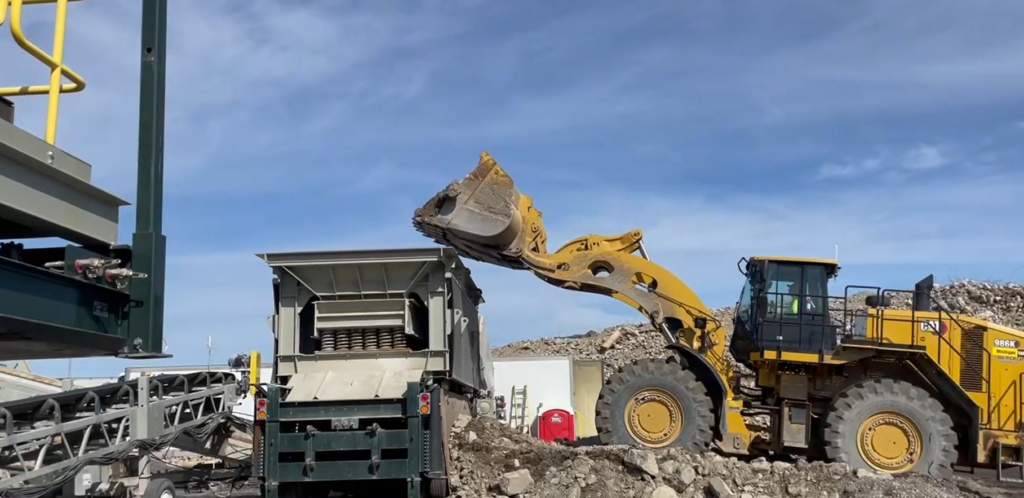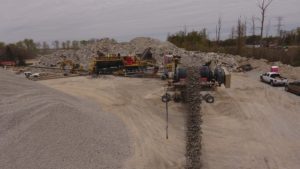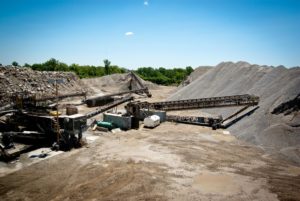Recycled Aggregates Recycling Concrete
Construction materials are increasingly judged by their ecological characteristics. Concrete recycling gains importance because it protects natural resources and eliminates the need for disposal by using the readily available concrete as an aggregate source for new concrete or other applications.
Recycling of concrete is a relatively simple process. It involves breaking, removing, and crushing existing concrete into a material with a specified size and quality. Reinforcing steel and other embedded items, if any, must be removed, and care must be taken to prevent contamination by other materials that can be troublesome, such as asphalt, soil and clay balls, chlorides, glass, gypsum board, sealants, paper, plaster, wood, and roofing materials. Recycled concrete aggregates produced from all but the poorest quality original concrete can be expected to pass the same tests required of conventional aggregates.
The simple act of recycling the concrete reduces the amount of material that must be landfilled. The concrete itself becomes aggregate and any embedded metals can be removed and recycled as well. Recycling concrete provides sustainability in several different ways. As space for landfills becomes premium, this not only helps reduce the need for landfills, but also reduces the economic impact of the project. Moreover, using recycled concrete aggregates reduces the need for virgin aggregates. This in turn reduces the environmental impact of the aggregate extraction process. By removing both the waste disposal and new material production needs, transportation requirements for the project are significantly reduced.
Five Area Locations
How to Purchase
Please visit the location page to learn the products carried and pricing.
To confirm availability please call Sales at
734-783-7474.
Safety Data Sheet
Table of Contents
- General Identification
- Hazard Identification
- Composition of Ingredients
- First Aid Measures
- Fire Fighting Measures
- Accidental Release Measures
- Handling and Storing
- Exposure Controls/Personal Protection
- Physical and Chemical Properties
- Stability and Reactivity
- Toxicology Information
- Ecological Information
- Disposal Considerations
- Transport Information
- Regulatory Information
After Hours Dumping
Click below for after hours dumping policy.
News from Recycled Aggregates
Recycled Aggregate’s New Portable Crushing Plant Featured
TCI Manufacturing featured Recycled Aggregate’s new custom crushing and screening plant on their website highlighting it’s features and components. A great partnership between HiPoint Aggregate Equipment, TCI Manufacturing, and Recycled Aggregates lead to a functional, efficient, and rugged portable plant design.
Read MoreRecycled Aggregates
Concrete recycling gains importance because it protects natural resources and eliminates the need for disposal by using the readily available concrete as an aggregate source for new concrete or other applications. …
Read More- « Previous
- 1
- 2


